World 🢖 Asia 🢖 South Korea
Waterfalls 🢔 Geological wonders 🢔 Categories of wonders
Wonder
Cheonjeyeon Waterfall
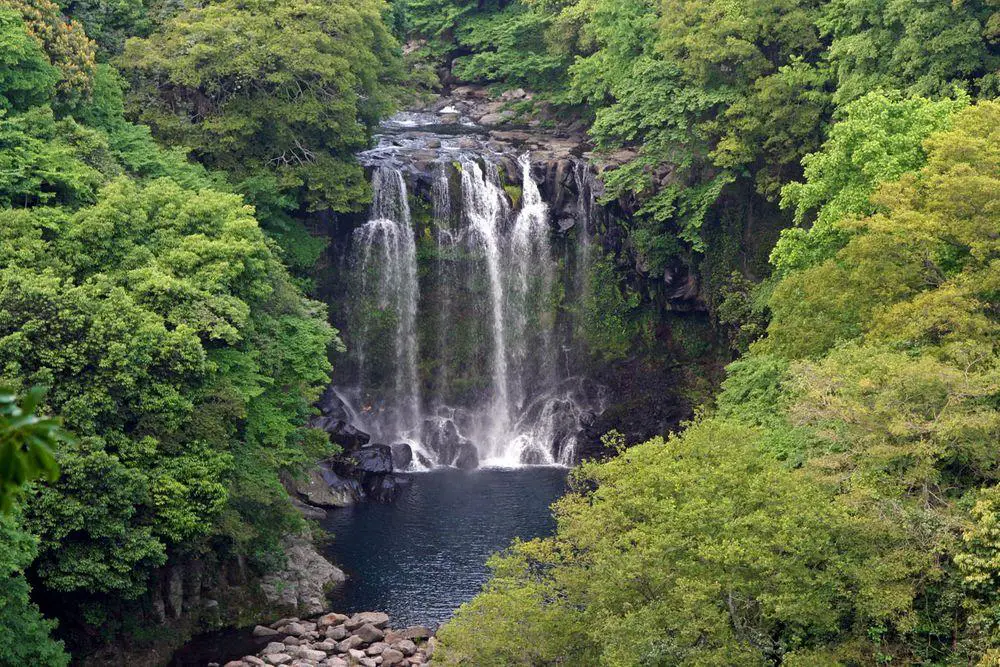
 In short
In short
The largest and most impressive waterfall on Jeju Island most likely is Cheonjeyeon Waterfall. It forms three impressive cascades over the volcanic basalt.
 38.3%
38.3%
GPS coordinates
Location, address
Name in Korean
Height
Drops
Stream
Map of the site
If you see this after your page is loaded completely, leafletJS files are missing.
 In detail
In detail
Description
The total height of the cascades of the Cheonjeyeon Waterfall is not known. The first – upper – cascade is 22 m high and the second – 30 m high. The height of the third cascade is not mentioned, but it definitely is less tall than the first two.
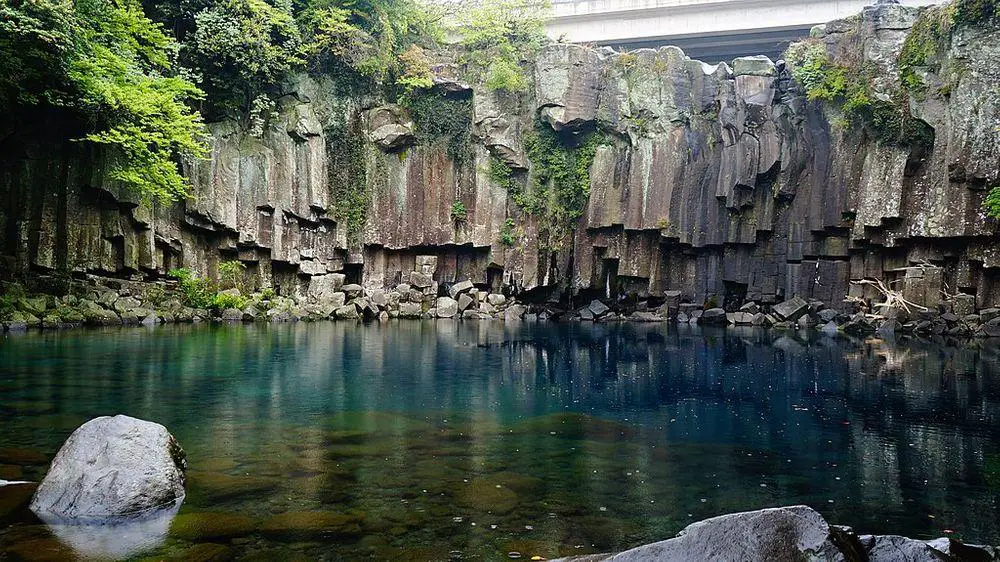
The first cascade marks also the beginning of the stream – it appears above the falls from a cave. Water is falling into a turquoise-colored pool – Cheonjeyeon pond – which is 21 m deep. Often this part of the falls is dry but the place is beautiful anyway with majestic basalt columns around the pond.
In the first half of the 20th century, local people built an irrigation system for rice fields (rare on the volcanic Jeju Island), taking away the water from the first cascade of the falls. This irrigation system helped to develop the rice-growing Jungmun village.
The second cascade comes after some 140 meters and, in general, has more water in it than the first. Here the water flows down along a steep, moss-covered basalt rock into the next pond.
After some 300 meters is the final cascade. With a single drop, the stream falls into one more deep-blue pond. Some 900 meters further the stream reaches the sea.
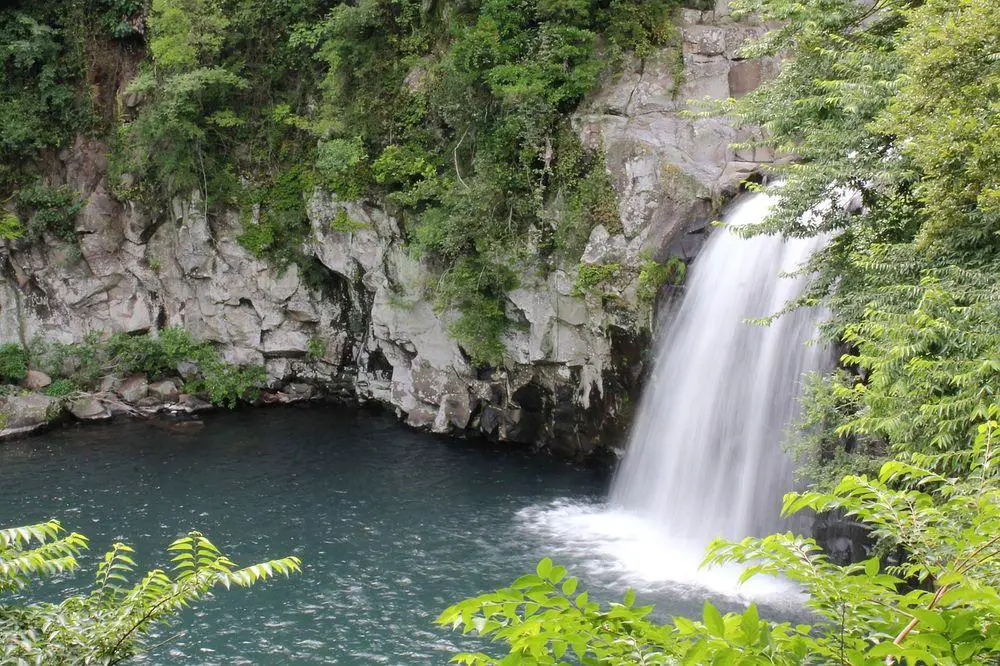
Forest and bridge
A small fragment of the warm temperate forest grows around the falls – 363 species of plants have been found here. Waterfall together with this forest is a designated natural monument (No.378) since 1993. Near this waterfall are also Yeomiji Botanical Gardens.
Between the second and third cascade, the river is crossed by a Seonimgyo Bridge – a beautiful bridge that is adorned with seven nymphs.
Swimming in the falls is forbidden.
Legends
According to a local legend in the night seven nymphs – handmaids of the Heaven’s Emperor – descended from heaven on a violet beam of moonlight and bathed in the waterfall pond. Hence comes the name of falls.
According to another legend, one can cure his disease if he stands under the first cascade of falls on the 15th day of the seventh lunar month (in late August).
References
- Kyung Sik Woo, Young Kwan Sohn, Seok Hoon Yoon. Jeju Island Geopark – A Volcanic Wonder of Korea. 2013, page 34.
- Misshappyfeet.blogspot.com, Visiting Cheonjeyeon Waterfalls, Jeju Island. June 2, 2019. Visited on September 19, 2019.
 Linked articles
Linked articles
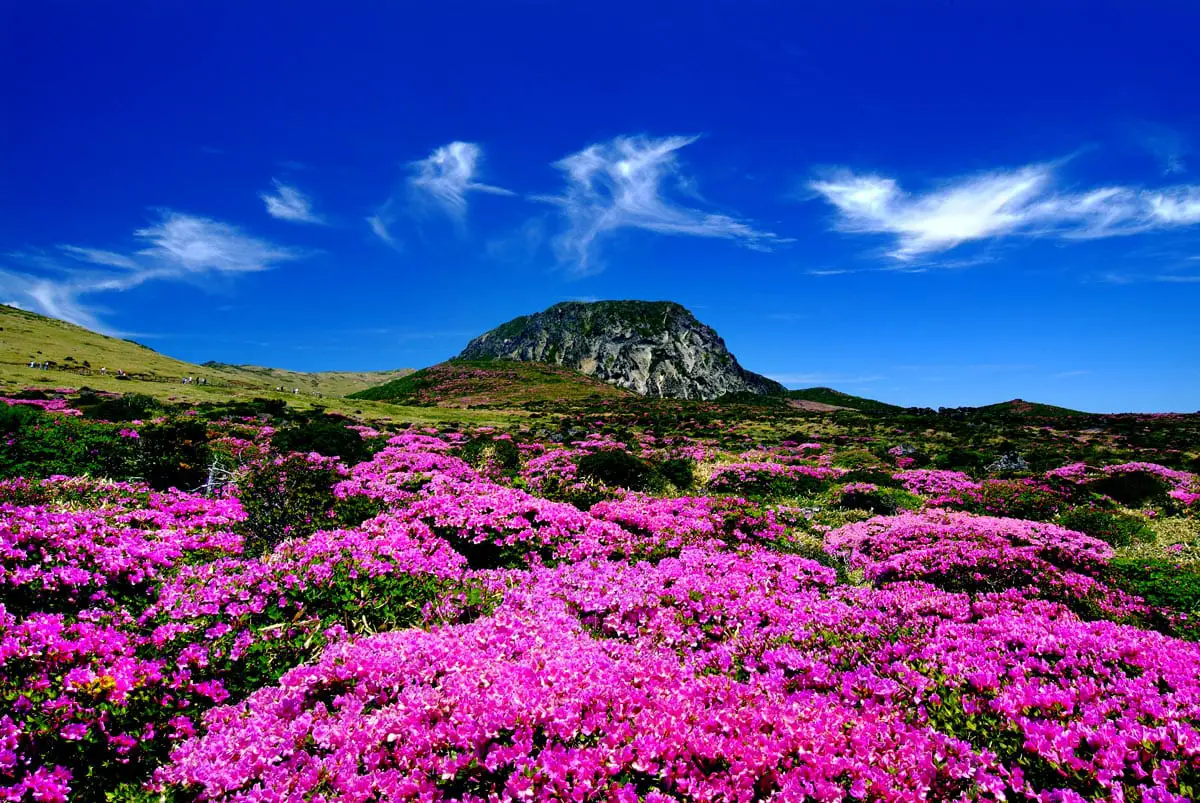
Wonders of South Korea
The rich and distinct culture of Korea has created countless amazing landmarks. Yes, South Korea has beautiful natural landmarks, but the extremely rich man-made heritage leaves them in shadow. The most interesting landmarks there are Buddhist temples, traditional villages, and megaliths.
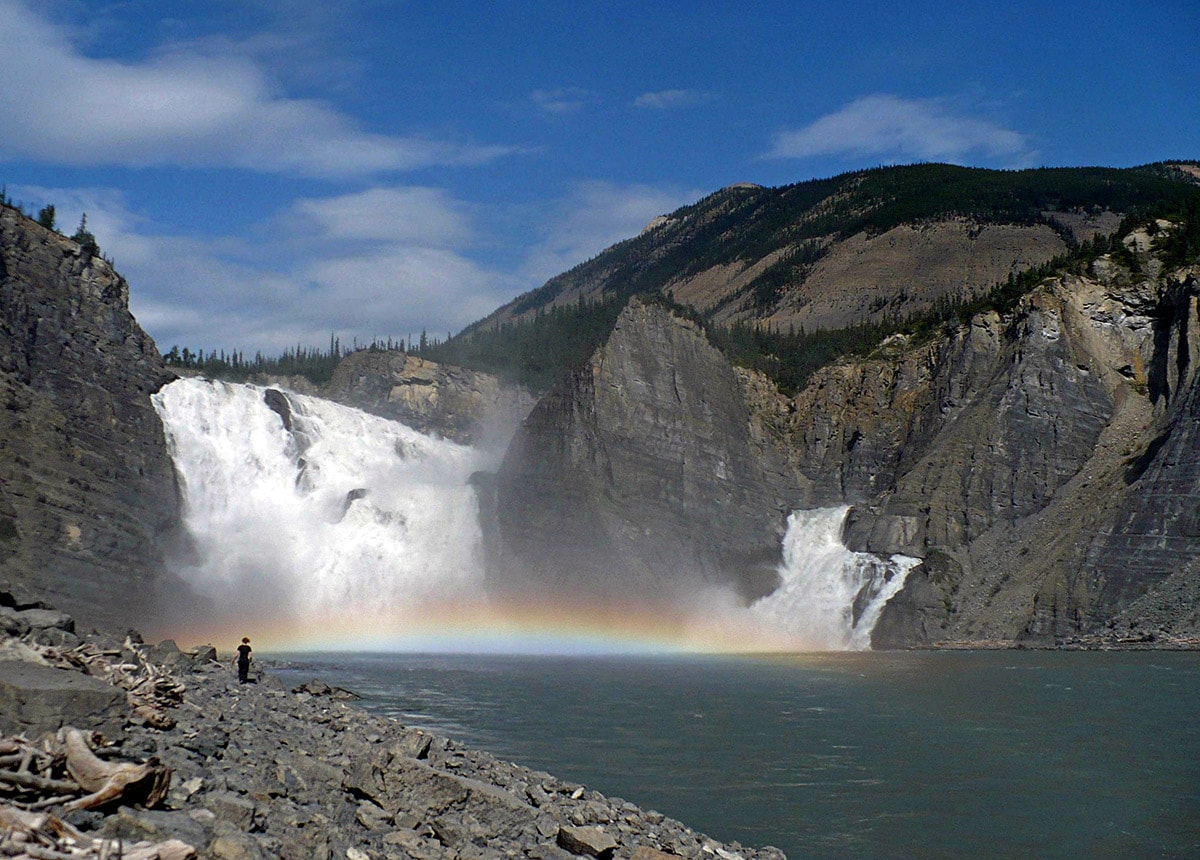
Waterfalls
Some of the most fascinating and awe-inspiring natural monuments are waterfalls or locations where a river abruptly changes its elevation.
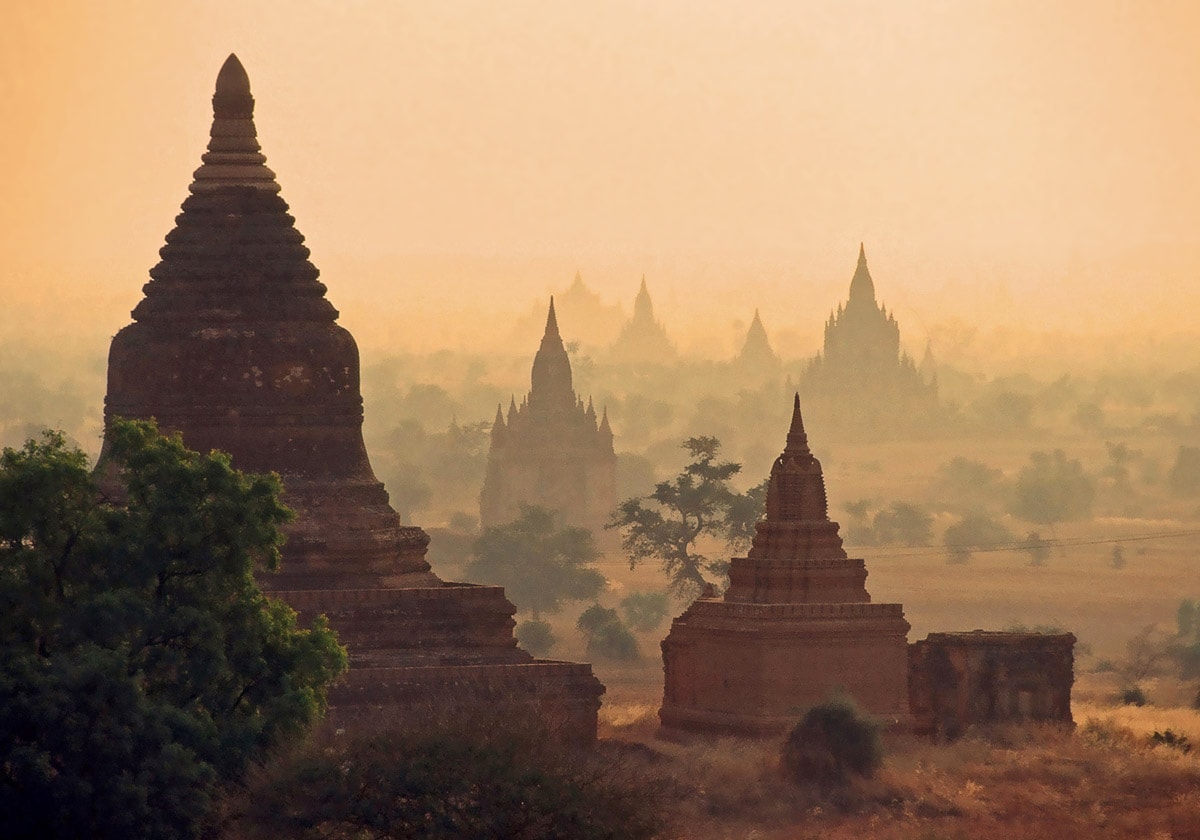
Wonders of Asia
Any other continent (and part of the world) seems small if compared to Asia. This refers also to natural and man-made heritage: in Asia are not just thousands of great landmarks, there are found landmarks created by thousands of diverse cultures from ancient Phoenicians to the mysterious small people in the Philippines and eastern islands of Indonesia.
 Recommended books
Recommended books
A Complete Guide to Jeju Island
A Complete Guide to Jeju Island provides you with all the information you need to plan your trip to Jeju Island in South Korea. Dive into a fascinating journey through several thousand years of history, as you plan your trip, you will be enthralled with such sites as Cheonjiyeon Waterfall, Suwolbong Peak, and Gwaneumsa Temple.
Jeju Island Geopark – A Volcanic Wonder of Korea
This book will deal with geological as well as cultural, historical, archaeological, and biological aspects in Jeju Global Geopark. It will start with an introduction of Jeju Global Geopark, geographic setting, habitats, history, economy and tourism, management, general geology and geosites, future geosites, other significant heritage sites, economically sustainable tourism, education and promotion, and management plan.


